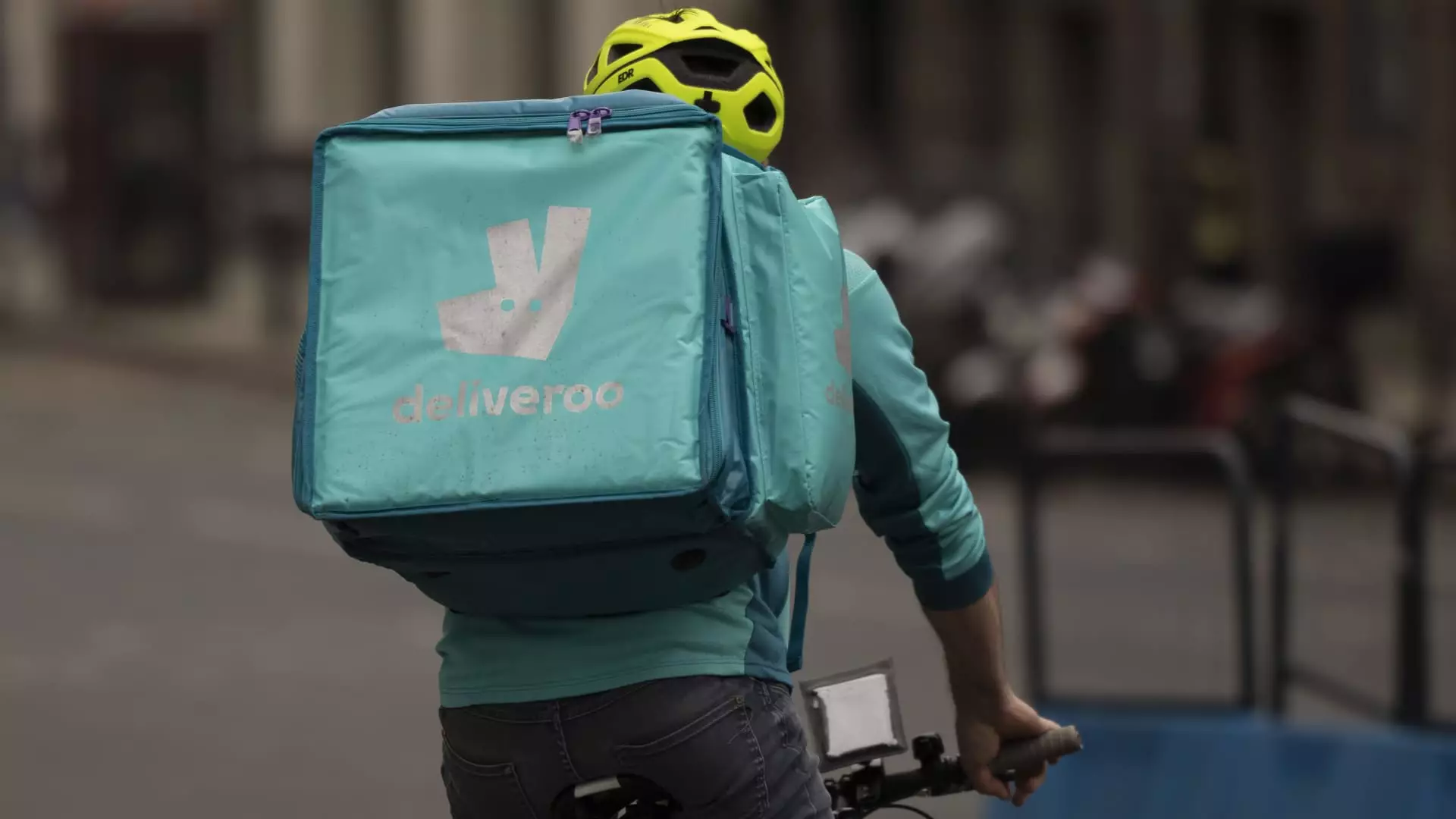In a remarkable turn of events, British food delivery giant Deliveroo has entered into a lucrative acquisition deal with American counterpart DoorDash, valuing the company at an impressive £2.9 billion ($3.9 billion). This acquisition reflects not just a significant monetary transaction but also a pivotal moment in the competitive dynamics of the food delivery industry, which has been fraught with challenges and uncertainty. With DoorDash offering 180 pence per share—a staggering 44% premium over Deliveroo’s last recorded price—the deal signals a fresh beginning for a company that has faced considerable hurdles since going public.
The Roller Coaster Ride of Deliveroo
Deliveroo’s journey to this acquisition has been marked by volatility, initially soaring in popularity as Britain turned to food delivery during the pandemic. However, what seemed like unstoppable growth veered off course following its turbulent debut on the London Stock Exchange in 2021, where the company’s shares plummeted by about 30%. This disaster, alongside a mixed bag of investor sentiment regarding the sustainability of demand post-COVID and increasing competitive pressures, cast a pall over its stock performance, leading to a staggering 50% decline from its IPO price of £3.90.
The historical context of this acquisition cannot be overlooked; it signifies more than just a rescue operation for Deliveroo but rather signifies a strategic alignment that could potentially redefine market dynamics. The talk of an end to Deliveroo’s troubled share performance is tantalizing but also raises questions about the resilience of the food delivery model in a post-pandemic landscape.
DoorDash’s Aspirations Beyond the Pond
For DoorDash, this acquisition is laden with opportunity. As the American food delivery titan looks outward, acquiring Deliveroo is not merely a desire to broaden horizons but a calculated move to tap into a European market that is ripe for expansion. CEO and co-founder Tony Xu expresses his enthusiasm succinctly, highlighting the shared ambitions that DoorDash and Deliveroo can attain—serving local businesses and enhancing their technology and tools. The combined forces of these two entities promise synergy and new service capabilities that could ultimately enhance user experience across their growing network.
DoorDash’s prior acquisition of Finnish food delivery app Wolt for €7 billion illustrates a clear strategy: to consolidate and dominate in the international food delivery landscape. The European market presents unique challenges, yet it also offers considerable scalability and the potential to redefine food logistics across a rapidly changing consumer behavior paradigm.
The Broader Context of Market Consolidation
This acquisition underscores a larger trend of consolidation within the food delivery sector, as companies grapple with the increasing burdens of competition, profit margins, and operational efficiencies. Industry giants like Just Eat Takeaway are making moves to solidify their standing as well, with the latter agreeing to be acquired by investment group Prosus. Such maneuvers highlight an industry in transition, where size, market reach, and technological prowess are indispensable for survival.
The cocktail of rising delivery costs, labor challenges, and evolving consumer preferences means that only the most adaptable and innovative companies will thrive. For Deliveroo, this acquisition could offer not just a financial lifeline but a coherent strategy to navigate an uncertain future alongside a formidable competitor.
Implications for Consumers and Local Businesses
Ultimately, the ramifications of this merger are likely to resonate beyond boardroom discussions. For consumers, this combination may enhance the quality and variety of services available. DoorDash’s technological capabilities merged with Deliveroo’s established UK presence could lead to quicker deliveries, better restaurant partnerships, and improved overall user satisfaction. Local businesses, which have increasingly depended on delivery platforms for revenue, may now enjoy increased support and resources that can help them thrive in a competitive environment.
As the dust settles on this historic acquisition, the industry will be watching closely. Will this partnership pave the way for an era of streamlined services, or will it further complicate an already intricate food delivery landscape? With uncertainty looming everywhere, one thing is clear: the stakes are high and the players are determined to shape the future of dining as we know it.


Leave a Reply